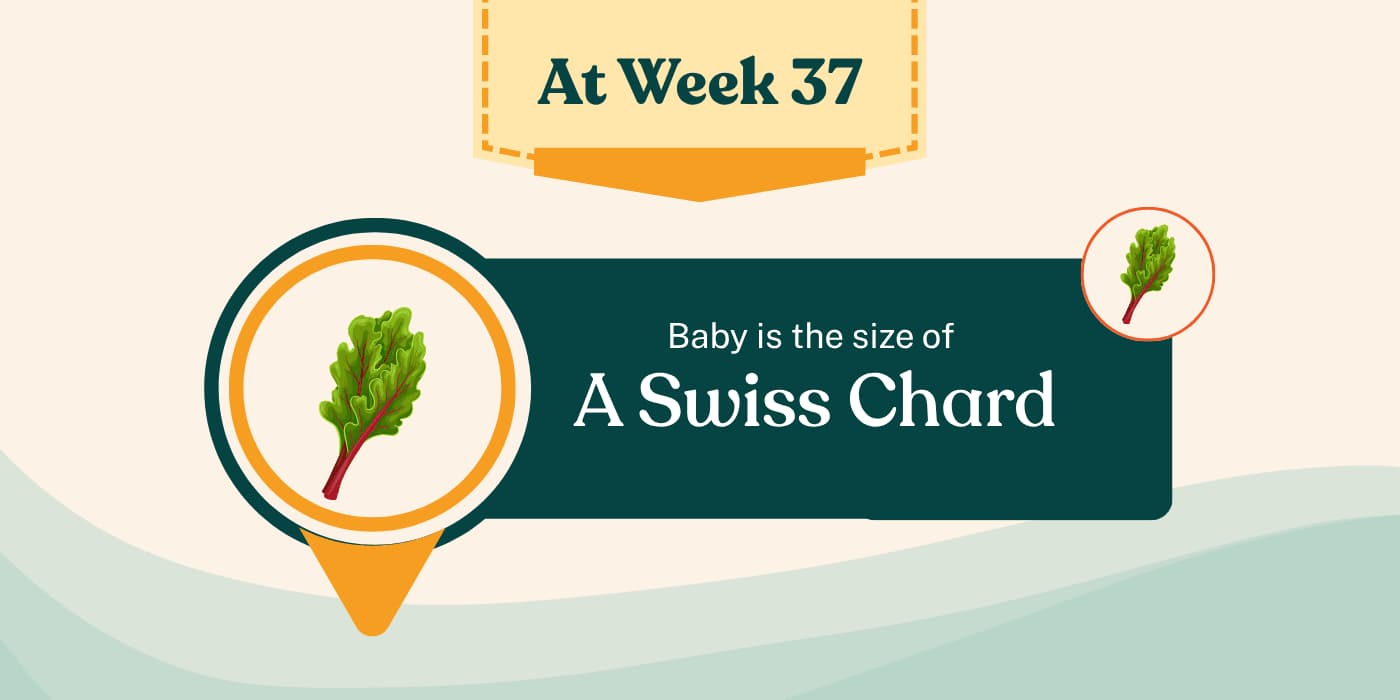Your Pregnancy at Week 37
sciencephoto
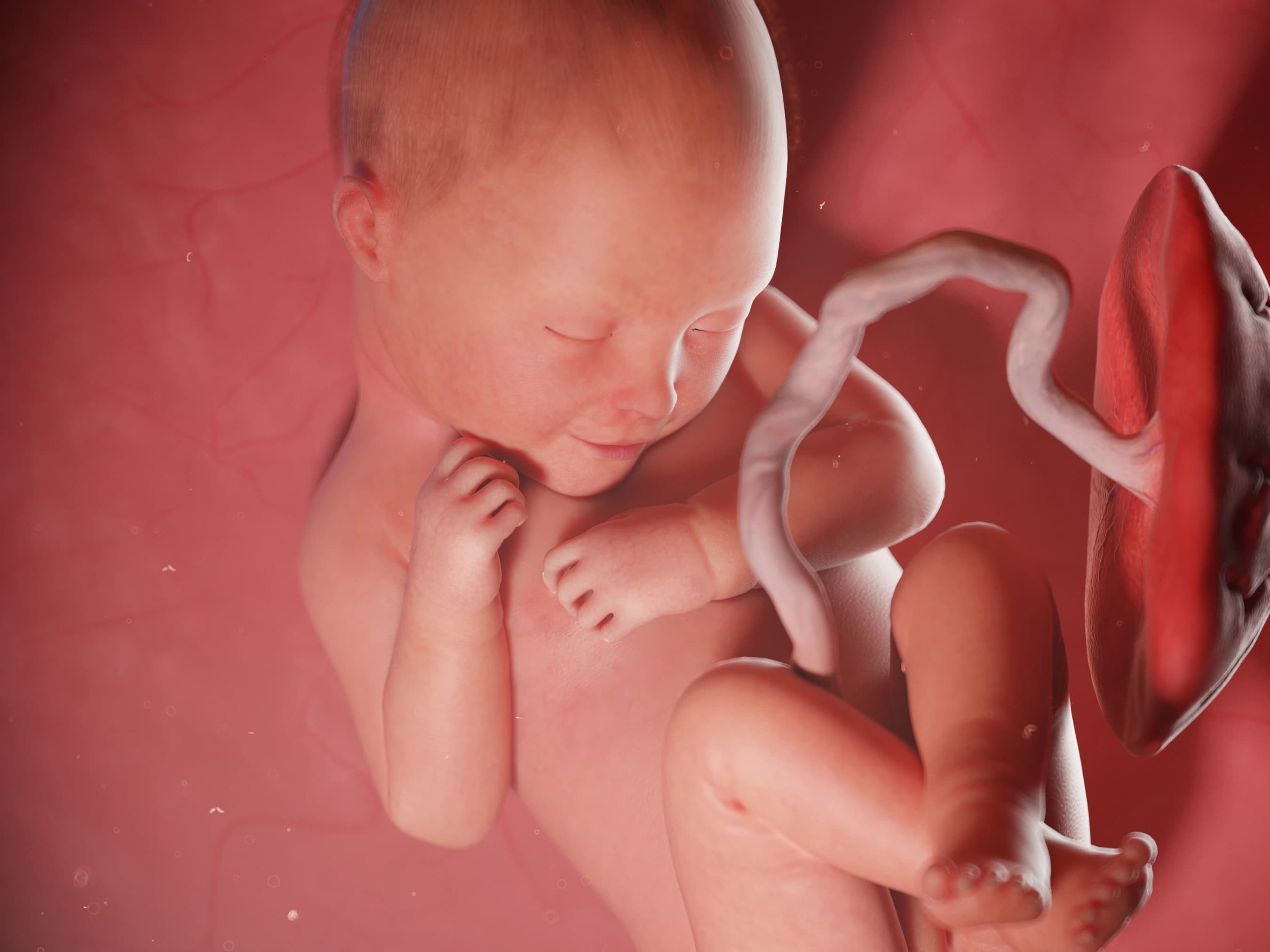
Written by Mindsmaking Medical Writer
Fact Checked by Mindsmaking Professionals
2nd, December, 2025
At 37 weeks pregnant, you're almost there! Your baby is preparing for birth, and your body is getting ready, too, which might bring new sensations and challenges.
At 37 weeks pregnant, you are officially in the ninth month. After being in your womb for several weeks, your baby could lock eyes with you at any moment between now and three weeks. Your baby is making the finishing steps for life on earth and has become gentle.
Meanwhile, you should prepare for life with your little one and get everything they need. You might also need to learn labour practice to avoid getting caught off guard.
Key Takeaways
At 37 weeks, your baby's lungs are likely mature enough to breathe independently if born.
Your baby measures around 19.13 inches and weighs about 2589 grams, comparable to a bunch of Swiss chard.
As you approach the final weeks of pregnancy, you might experience a strong urge to prepare your home for your baby's arrival, known as the "nesting instinct."
By 37 weeks of pregnancy, your uterus has reached its maximum size, meaning your belly is likely at its largest.
At 37 weeks, the pressure from your growing baby can lead to gas, bloating, constipation, and indigestion.
At 37 weeks pregnant, you should contact your doctor immediately if you experience severe symptoms or a noticeable decrease in your baby's movements.
Regular pelvic floor exercises can reduce the risk of post-birth complications and enhance sexual pleasure.
Regular pelvic floor exercises can reduce the risk of post-birth complications and enhance sexual pleasure.
Getting a waterproof sheet can help safeguard your mattress in case your water breaks while you're asleep.
Take a peek

Grasp
By this stage, your baby's coordination has improved enough to grasp things with their fingers, developing motor skills even before birth.
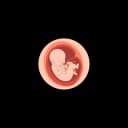
Response to light
If a bright light is shown to your belly, your baby may be able to perceive it and turn towards it, which indicates that their senses are becoming more responsive.
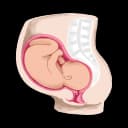
Lung maturity
If labour begins at 37 weeks, your baby's lungs are likely mature enough to breathe independently.
Baby Development at Week 37
At this point, your baby has gained enough coordination to grasp objects with their fingers. If exposed to a bright light, they might even turn towards it while still in your womb. Your baby steadily gains weight, accumulating fat at about half an ounce (14 grams) daily. On average, boys tend to be heavier than girls at birth. (4)
At 37 weeks pregnant, your baby's lungs are likely mature enough to breathe independently if you go into labour. However, if you're planning a Caesarean section and are only carrying one baby, doctors usually wait until around 39 weeks to perform the procedure. This additional time allows for your baby's lungs, brain, and other vital organs to be fully developed.
By now, your baby may have a full head of hair up to an inch and a half long, though some babies might have just a fine layer of peach fuzz. Your baby's body fat, currently around 8%, will increase to about 15% over the next three weeks, preparing them for life outside the womb. Meanwhile, antibodies continue to pass from you to your baby through the placenta, boosting their immune system.
After birth, your breast milk, starting with nutrient-rich colostrum, will continue to provide essential antibodies to help protect your baby from infections and support its developing immunity.
Mindsmaking
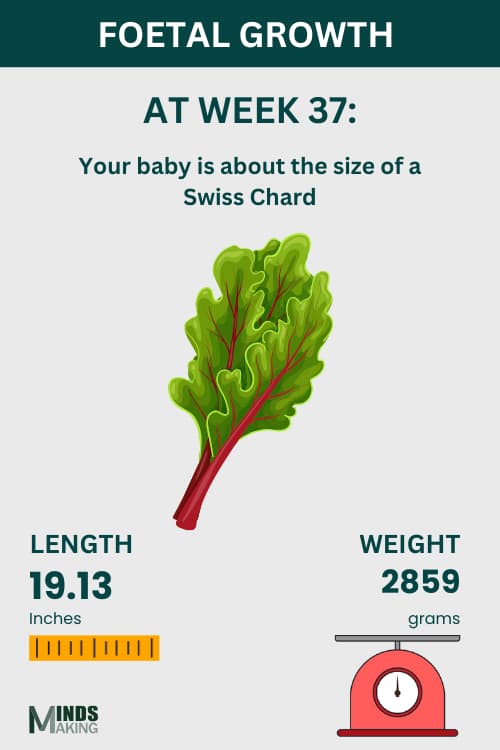
Body Changes at Week 37
As you approach the final weeks of pregnancy, it's common to experience what's known as the "nesting instinct." This sudden and strong urge to prepare your home for your baby's arrival can manifest in various ways. You might find yourself obsessively cleaning, organising, or rearranging things, such as meticulously sterilising baby bottles or washing baby clothes repeatedly. This is your body's natural way of preparing for the big day. However, not everyone experiences this urge to nest; some may feel content to rest instead.
Your baby may still be sitting high in your abdomen but will gradually move down into your pelvis as they prepare for birth, but until that happens, you might feel more out of breath. This is because your internal organs are being pushed against your lungs, making breathing harder. It's important to take things easy and avoid overexertion. If you're struggling with breathlessness, it's wise to consult your midwife to ensure everything is progressing normally.
Emotionally, it's not unusual to feel overwhelmed as the reality of what's to come starts to sink in. You might find yourself unexpectedly emotional, even crying in situations that wouldn't normally affect you. These heightened emotions are a normal part of the final stages of pregnancy, and it's a good idea to share your feelings with your partner, friends, or family. Sometimes, all you need is a little extra support and reassurance.
You may also start to experience Braxton Hicks contractions, which can mimic the signs of labour. These contractions are often called "practice contractions" because they are typically irregular and don't increase in intensity like true labour contractions. While these can signal that your body is getting ready for birth, they are usually nothing to be concerned about. Unless your water breaks or the contractions become regular and more intense, it's safe to continue your usual daily activities, keeping an eye on how your body is progressing.
Read This Next
No posts available
Baby Bump At Week 37
In the final month of pregnancy, your uterus has reached its maximum size, meaning your belly is likely at its largest by 37 weeks. At the beginning of your pregnancy, your uterus was relatively small, weighing only about 2 ounces. However, as your pregnancy has progressed and your baby has grown, your uterus has expanded significantly to accommodate your baby. By this stage, your uterus now weighs around 2 ½ pounds. This remarkable growth reflects the significant changes your body has undergone to support your baby throughout the pregnancy.
Pregnancy Symptoms at Week 37

Gas and bloating
At 37 weeks pregnant, your growing baby is taking up a lot of space in your abdomen, which puts pressure on your stomach, intestines, and other organs. This can cause uncomfortable symptoms like gas, bloating, constipation, and indigestion. To help manage these symptoms, try eating smaller, more frequent meals instead of large ones, and avoid drinking too much liquid at once. A gentle walk after eating can also help stimulate digestion and reduce discomfort.
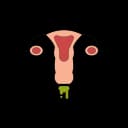
Mucus plug
You may lose your mucus plug, a thick piece of mucus that has sealed your cervix throughout your pregnancy to protect your baby from infections. The timing of losing the mucus plug varies for every woman. It could happen weeks, days, or even hours before labour starts. When it happens, it often appears as a yellowish discharge that may be tinged with blood.

Low back pain
Lower back pain is common during pregnancy, especially in the later stages, affecting over 60 percent of pregnant women. To alleviate this pain, maintain good posture, even though it can be challenging with a nearly full-term baby. Exercise, such as swimming, can help by reducing pressure on your back, and simple exercises like pelvic tilts can provide relief. A prenatal massage is another option for easing sore muscles and offering relaxation. If these methods don't help, consult your healthcare provider for other possible treatments, like physical therapy or medication.
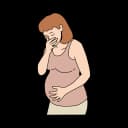
Abdominal pressure
As your baby moves down into your pelvis in preparation for labour, they put additional pressure on your lower abdomen. This shift can cause new aches and pains in the pelvic area, which might differ from what you've experienced earlier in pregnancy. You may also notice a stronger urge to pee more frequently, along with these aches. This is because your baby's head is pressing on your bladder, reducing its capacity and making you feel the need to urinate more often.

Trouble sleeping
At week 37, getting a good night's sleep can become increasingly difficult for various reasons. Finding a comfortable sleeping position when you're heavily pregnant can be challenging, and you might also have a lot on your mind as your baby's birth approaches. Despite these difficulties, it's important to prioritise sleep. If you're unable to sleep well at night, try to take it easier during the day, allowing yourself to rest when you can. This rest is essential as you prepare for labour demands and the early days and weeks of caring for a newborn.
Pregnancy Concerns at Week 37
You don't have to wait for your appointments if you have concerns or questions about your pregnancy. However, at 37 weeks pregnant, contact your doctor immediately if you experience:
- A noticeable decrease in your baby's movements
- Severe cramping
- Vaginal bleeding
- Severe heartburn
- Changes in vaginal discharge
- Intense headaches or blurry vision
- Fever
- Severe vomiting
- Dizziness or fainting
Health Tips for Pregnancy Week 37
Eat healthily
A well-rounded diet helps ensure you and your baby get the nutrients for a healthy pregnancy. Focus on eating foods high in nutrients rather than just simple carbohydrates, which offer fewer benefits. Your baby requires calcium for developing a healthy nervous system and strong bones. If your intake is inadequate, your baby may draw calcium from your bones, weakening you. For protein, opt for lean meats, poultry, and fatty fish, which provide high-quality protein essential for growth and development. Also, aim to meet your daily iron requirement of 27 milligrams to support increased blood volume and prevent anaemia.
Use an exercise ball
For a beneficial late-pregnancy workout, consider using an exercise ball. It's an effective tool for strengthening core muscles and can offer relaxation and relief during pregnancy and labour. Select a high-quality, burst-resistant ball in the right size for your height: 22 inches (55 cm) for those under 5-foot-3 and 26 inches (65 cm) for those taller. Always check the instructions to ensure proper size and safety.
Strengthen your pelvic floor
Strengthening your pelvic floor muscles can help reduce the risk of post-birth issues like stress incontinence or prolapse and can also enhance sexual pleasure by leading to more intense orgasms. To exercise these muscles, squeeze and lift them, gradually working up to a 10-second hold. If you struggle with these exercises, consult your healthcare provider, who may refer you to a specialist for further advice.
Stretch out your meals
Eating slowly can help ease digestive discomfort, especially during pregnancy. When you take your time with meals, your body can properly digest food, which can reduce symptoms like bloating, indigestion, and heartburn. By stretching out your meals, you allow your stomach to process food more efficiently, potentially preventing or alleviating discomfort.
Continue sleeping on your side
It is recommended to sleep on your side because studies have found that sleeping on your back is associated with a higher risk of stillbirth. When lying on your back, the weight of the uterus can compress major blood vessels, potentially reducing blood flow and oxygen to the baby. To mitigate this risk, it is advised to sleep on your side, either your left or right side, both at night and during daytime naps. This position helps ensure optimal blood flow and reduces pressure on the uterus, contributing to a safer environment for the baby.
Advice for Partners
At 37 weeks pregnant, your partner might appreciate extra support as she prepares for the baby's arrival. Whether it's assembling the crib, finishing the nursery, or helping with household chores, offering your assistance can ease her stress. If you've already completed her "honey-do" list, consider planning a special date to spend quality time together before the baby arrives. Small help and kindness can make a big difference during these final weeks.
Pregnancy Checklist for Week 37
- Even if you're not hiring a doula for labour, you might consider hiring one for the postpartum period. They can help with things like soothing the baby, assisting with feeding issues, and watching the baby while parents rest.
- If you have older children, try to spend quality time with them while you still can. Also, take steps to help them adjust to a new sibling joining the family.
- Consider getting a waterproof sheet to safeguard your mattress if your water breaks while you're asleep.
- If you plan to breastfeed or pump, consider getting a few good-quality nursing bras. These bras are designed to provide comfort and support, making it easier to nurse or pump milk.
- Fill your freezer with ready-to-heat meals, as cooking may be challenging once your baby arrives.
Frequently Asked Questions
How big is my baby at week 37?
At week thirty-seven, your baby weighs 2859 grams, gaining about half a pound weekly. They are about the size of a bunch of Swiss chard, standing at 19.13 inches. This week, your baby's growing head will be roughly the same circumference as their chest.
Is it safe to deliver at 37 weeks?
Delivering at 37 weeks is generally considered safe, as most babies born at this stage are fully developed and typically do well outside the womb. However, 37 weeks is technically still considered "early term," meaning the baby has not yet reached full term, which is 39 to 40 weeks. While the risks of complications are relatively low, babies born at 37 weeks may still face some challenges, such as breathing difficulties, feeding problems, or difficulty maintaining body temperature, compared to those born at full term. If labour begins naturally at 37 weeks, there is usually no cause for concern. However, unless there's a medical reason, doctors typically prefer to wait until at least 39 weeks to schedule an induction or C-section to give the baby the best chance of being fully ready for life outside the womb.
Is diarrhoea at 37 weeks a sign that labour is coming?
Diarrhoea at 37 weeks can be a sign that your body is preparing for labour, but it doesn't necessarily mean that labour is imminent. For some women, diarrhoea is one way the body starts to prepare for labour, as hormonal changes can cause the digestive system to become more active. However, this can happen days or even weeks before actual labour begins. If diarrhoea occurs along with other signs of labour, such as regular contractions, the loss of your mucus plug, or a "bloody show," it could indicate that labour is approaching.
Can I travel at 37 weeks pregnant?
At 37 weeks pregnant, avoiding booking long-haul trips is recommended. At this stage, staying close to home is preferable, as your baby could arrive at any time. While it's perfectly fine to continue your usual daily activities, it's wise not to travel more than a couple of hours away from home or your hospital in case your baby decides to come early. Preparing is crucial, so ensure your hospital bag is packed and ready to go. It's also a good idea to take your hospital bag and antenatal notes with you whenever you go out, even if it's just for a short trip.
How do I know my cervix is dilating at 37 weeks pregnant?
At 37 weeks pregnant, if your cervix is starting to dilate, you might be unable to tell on your own. Dilation is usually detected when your healthcare provider examines your cervix. However, some other signs of labour often suggest your cervix is beginning to change. One key sign is the loss of your mucus plug, which protects your uterus from infection during pregnancy. When this happens, you may notice an increase in vaginal discharge that could be clear, pinkish, or slightly bloody.
Was this article helpful?
How many stars are you giving this article?
Leave a comment
Your email address will not be published.
